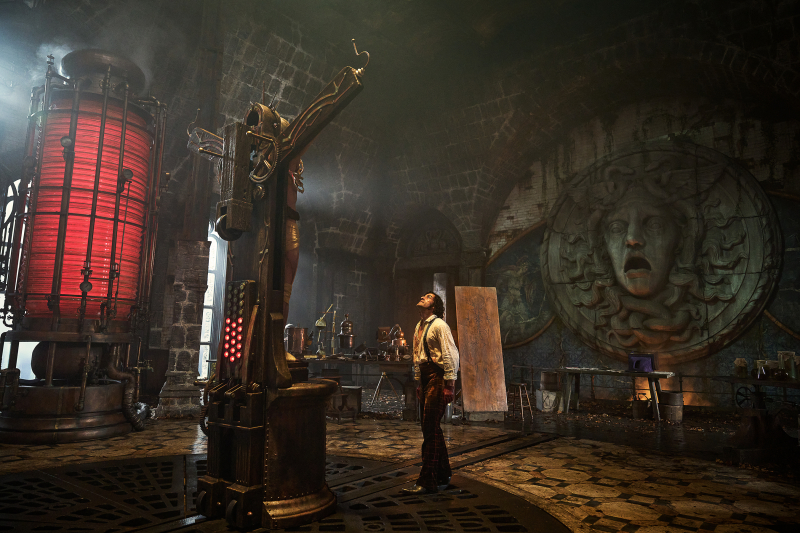
Netflix
MOVIE REVIEW
Frankenstein (2025)
Mary Shelley’s 1818 novel, “Frankenstein; or, The Modern Prometheus,” has inspired nearly 20 films, among them a few sequels and even a parody from Mel Brooks. Interestingly, the vast majority of them are modernized reimaginings. Up to this point, the most serious attempt at a straight adaption has been Kenneth Branagh’s 1994 “Mary Shelley’s Frankenstein,” a misguided disappointment on all accounts thanks to the director’s runaway ego.
Gothic material is certainly in the wheelhouse of Guillermo del Toro, who delivers perhaps the most definitive big-screen rendering of the tale, which premieres at Venice International Film Festival. Even so, there’s something a bit off about the film tonally, as if it or Mr. del Toro isn’t in the right mood.
The new “Frankenstein” is divided into three sections. In the prelude, Victor Frankenstein (Oscar Isaac) is rescued and taken aboard by the Danish crew of a North Pole-bound ship caught by the ice sheet. His infamous indestructible Creature (Jacob Elordi) soon emerges from the tundra, undeterred by the shots fired at him. The quick-thinking Captain Andersen (Lars Mikkelsen) manages to drown him.
Inside the cabin, Victor recounts the Creature’s origin story to Captain Andersen. The last two thirds of the film rely heavily on voiceover narrations, which, while appropriate, cast the entire exercise as an illustrated audiobook even against spectacular sceneries and visual effects. And the scenes with actual spoken dialogue feel super stagy.
Part I is told from Victor’s perspective, tracing all the way back to his traumatic childhood (with Christian Convery stepping in). His surgeon father (Charles Dance), who married Victor’s mother only for wealth and social standing, quizzes little Victor on advanced medicine and administers corporal punishment when he misses a question by striking his face with a long stick. It’s no wonder he grows up to be a monster. Academics deem his experiment on reanimating cobbled-together body parts as unholy obscenity, but it nevertheless earns him patronage from arms merchant Heinrich (Christoph Waltz).
The Creature takes over the narration in Part II, in which Victor grows up to become his father, treating the male equivalent of “Poor Things” as an animal. Realizing his idea is half-baked, Victor sets his castle on fire with the intention of killing the Creature, who manages to escape. The Creature fills us in on his own tragic upbringing as a leper constantly targeted by hunters.
Even with a 2-hours-and-29-minutes runtime, “Frankenstein” feels rushed. It’s trying to cram in so much that there’s no time left for character development. The excessive voiceover narrations do the heavy lifting on a lot of telling and a dearth of showing, hence the audiobook comparison. We never get a sense of why Elizabeth (Mia Goth), Victor’s to-be sister-in-law, would suddenly harbor romantic feelings for the Creature. We just have to take her word for it.
Mr. del Toro just recently tackled “Pinocchio,” so it’s kind of bizarre that he would want to frame “Frankenstein” as a children’s bedtime story, especially one in which Victor gleefully hacks away at body parts like Patrick Bateman from “American Psycho.” Alexandre Desplat, one of the greats, also inexplicably scores the film like it’s some Disney movie. There’s no horror or suspense whatsoever, just magical dismemberments under golden hues and glittering harps on the soundtrack. It’s all kind of perverse, and I’m not sure if Mr. del Toro really meant it that way.
Comments